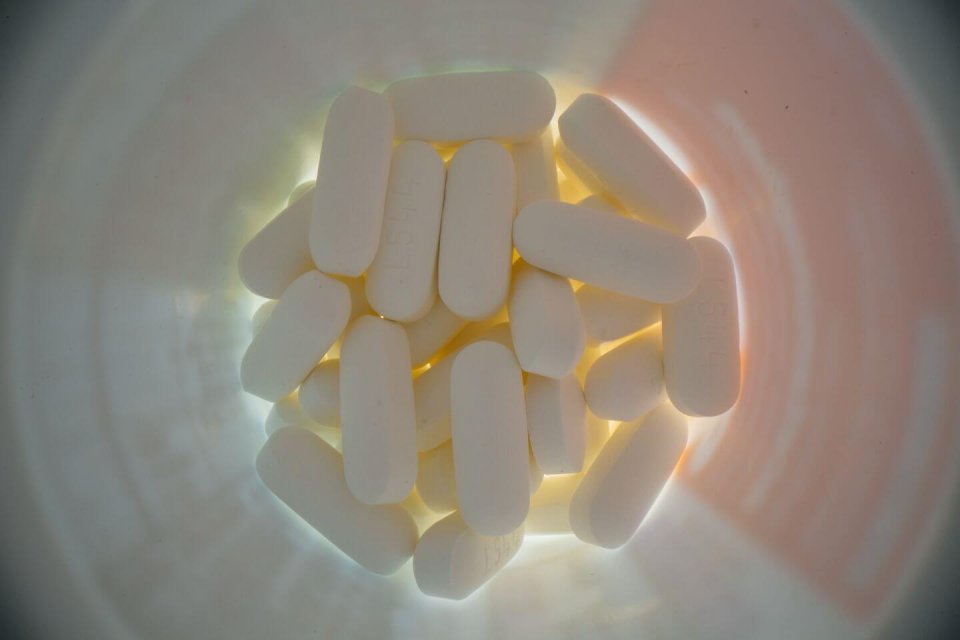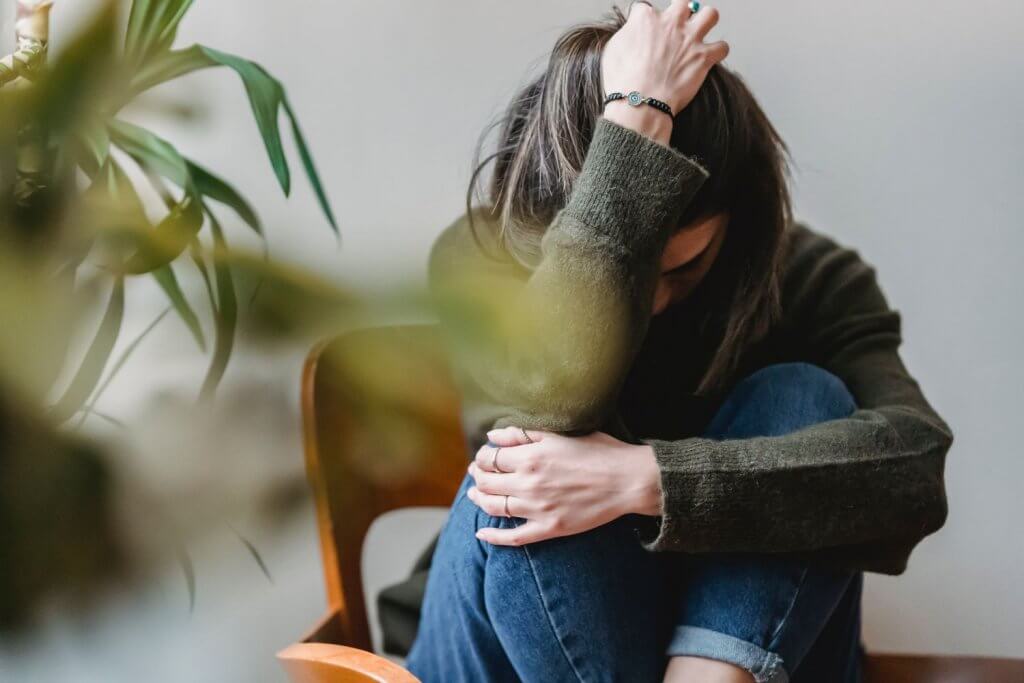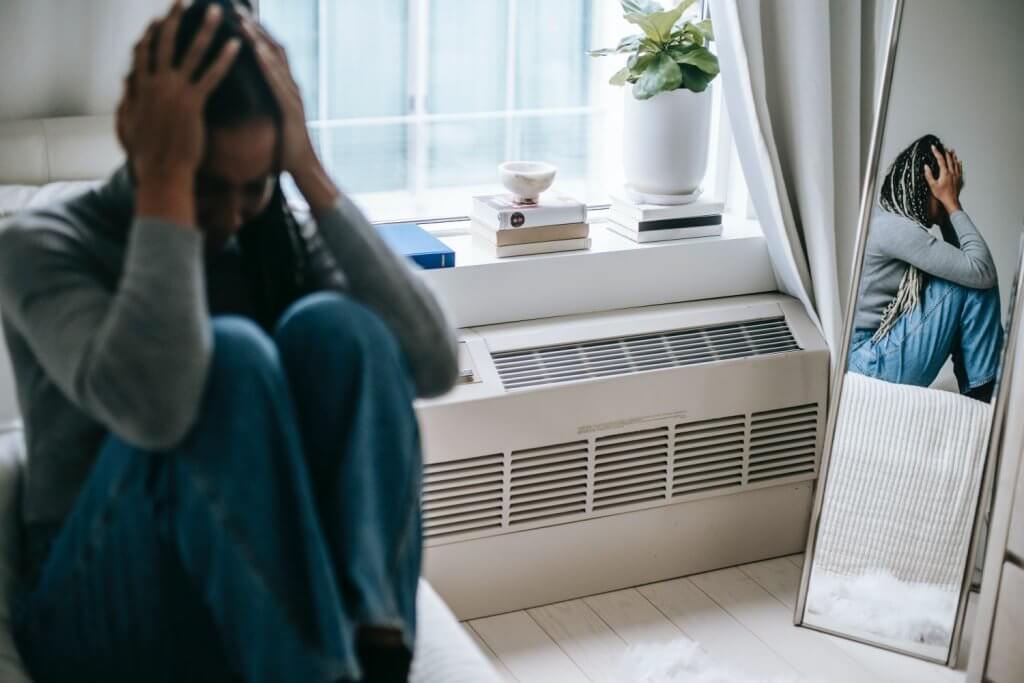
The use of benzodiazepine or benzos significantly increased through the years. Because of its sedative effects, some prescription users take excessive doses of benzos and eventually develop a tolerance for them.
Without this drug, they often find it difficult to function normally. On the other hand, once users decide to quit or cut back on their dose abruptly going through DIY benzodiazepine detox, withdrawal symptoms occur.
Going cold turkey on benzodiazepines can be dangerous for your health, especially if your addiction is severe. It would be best to taper down your dose under the supervision of a medical professional. Finding a treatment center that offers benzodiazepine detox is necessary in this case.

An Overview on Benzodiazepine Abuse
In 2016, researchers found that an estimated 30 million adults in the United States had used benzodiazepine, and among them, more than 17% had misused it. Benzodiazepine abuse and dependence have been common among all age groups, from young adults to older ones.
Whether you’re taking the drug legitimately or recreationally, benzos can be addictive. Even people who do not consider themselves addicted to it could experience withdrawal once they stop taking it.
Withdrawing from benzos can be a challenging and dangerous process. You may feel anxious, irritable, and hypersensitive to your surroundings. Physical symptoms like headaches, dizziness, and hand tremors may also be present.
To relieve the symptoms of withdrawal, you need to reduce your dose over time gradually. That way, you will only experience milder symptoms. Talking to a doctor or healthcare personnel can help ensure that you remain safe during withdrawal.
What is Benzodiazepine?
Benzodiazepines are usually prescribed to treat various medical conditions, including anxiety, panic disorder, seizures, and insomnia. Benzodiazepines function by modulating the neurotransmitter known as gamma-aminobutyric acid or GABA.
It sends out chemical messages through the brain and nervous system, producing a stimulating or calming effect. Taking this drug can reduce your anxiety levels, relax your muscles, and make you feel calm and sleepy.
Using this medication for a short time and under the supervision of a professional is usually safe and effective. However, long-term recreational use could result in overdose, tolerance, dependence, and other adverse effects.

Who Abuses Benzodiazepine?
While benzodiazepines were initially intended to alleviate people’s health issues, some people abuse these drugs for euphoric or relaxation purposes. People who deal with benzo dependence may fall under these two categories: those with prescriptions or those without prescriptions.
Some patients prescribed with benzodiazepine might take doses in large amounts or within a short interval. Others might take pills even after the doctor advised them to stop or hoard them to use whenever they have a terrible day.
Other types of users take it for recreation, meaning they don’t have prescriptions from doctors. They get benzos illegally to boost their drug-using experience.
Benzodiazepines and Addiction
While the intentional abuse of benzodiazepines doesn’t often happen in the general population, individuals with a history of drug abuse must take it more cautiously. This way, they can reduce the risk of seeking the drug to “get high.”
Benzos aren’t taken as the sole drug of abuse. Individuals usually combine them with other substances to boost their euphoric effect. They often pair it with opioids, strong prescription pain relievers, or alcohol. The most popular benzodiazepines used are diazepam (Valium) and alprazolam (Xanax) because of their fast onset.
Mental Health and Benzo Addiction Side Effects
Combining drugs could enhance sedative effects to an extreme level, to the point where it can get fatal. Specifically, mixing benzos with opioids (stimulants) may have contrasting effects and substantially increase the chances of overdosing.
People who have become dependent on benzos have a higher risk of experiencing the following side effects:
- confusion
- slurred speech or stutter
- seizures
- drowsiness or fatigue
- loss of appetite
- tremors
- abnormal heart rates
- difficulty breathing
- weakness
Benzodiazepine abusers could also develop dementia. This illness targets the brain, causing deterioration in memory, language, reasoning, and motor skills in the long term.
Benzodiazepine Withdrawal Symptoms
When you remove benzodiazepines abruptly from a person’s system, they may develop withdrawal symptoms. This sudden change makes it difficult for the person to cope with the situation adequately. Usually, those who have been taking high doses of benzodiazepines for a long time suffer the worst symptoms.
These are some of the usual withdrawal symptoms related to benzodiazepine reduction or withdrawal:
- Insomnia
- anxiety
- trouble sleeping
- panic attacks
- restlessness
- muscle tension
- irritability
- Some patients may also experience:
- nausea
- malaise
- blurred vision
- sweating
- nightmares
- depression
- muscle coordination problems
- muscle twitching
- hallucinations or delusions
- seizures
- ringing in the ears
Immediate recognition and treatment of benzodiazepine withdrawal are necessary before it gets worse. It is advisable to visit a healthcare professional or drug rehabilitation center to get the proper treatment. They will likely advise you to undergo detox to prevent withdrawal.

The Risks of Using Benzodiazepine to Treat Opioid Addiction
High-risk opioid users tend to self-medicate and take benzos to address psychiatric disorders, depressive states, and opioid withdrawal symptoms.
They may also misuse benzodiazepine to prolong the intensity and length of opioid effects. Such misuse is provoked by withdrawal symptoms caused by the reduction of their alternate treatment.
Many patients are unaware that taking benzodiazepines with opioids can pose a significant threat to people’s health. Both these drugs could suppress respiration, heightening the risk of a potential lethal apnea and impair cognitive functions.
How serious is benzo addiction and benzo withdrawal?
Data suggests that benzos contribute to the rising number of people admitted to a hospital due to a drug-related emergency. Another study in North Carolina also found that the overdose fatality rate among patients who take both types of drugs was much higher than those only receiving opioids.
Because of these health hazards, the U.S. Centers for Disease Control and Prevention (CDC) in 2016 released a guideline urging clinicians to avoid prescribing opioids and benzodiazepines simultaneously. Both opioids and benzos now have FDA “black box” warnings on their labels to alert people of the risks when taking these drugs together.
Benzodiazepine Use Disorder and Detoxification
To break the cycle of compulsive benzodiazepine abuse, you need to cleanse through detoxification. This process enables your body to start healing by purging the toxins that don’t belong in your system.
Medical detox is usually customized based on your evaluation. A medical professional will ask about the type of substance you are using and run tests to gauge the measurement of drugs in your body. They will also investigate the medications you’re using as well as your clinical and mental history.
As far as benzodiazepines are concerned, withdrawal symptoms need to be handled cautiously to avoid severe complications.
What is Benzodiazepine Detox?
Although benzos effectively treat mental health conditions, they can also be abused, much like opioids.
Because of their addictive nature, benzodiazepines are not recommended for long-term use. Ideally, benzos should only be prescribed for two to four weeks. The longer it takes, the higher the risks of developing drug dependence, which can be challenging to eliminate.
Benzodiazepine tolerance can happen quickly, and when it does, the person tends to use higher doses to satisfy his cravings. Developing dependence on benzos and then trying to quit will make you more likely to get withdrawal symptoms.
Benzodiazepine detox is the initial move you can take towards recovery. This takes place in a supervised facility and under the care of a healthcare professional to medically stabilize patients, reduce the dangerous side effects of withdrawal, and help them transition into a rehabilitation program or other form of continued support.
Professional detox facilities have medical professionals, nurses, and counseling staff available around the clock. This structure enables the facility to identify and treat any complications that may arise and provide patients the best level of care.

Benzodiazepine Withdrawal and Detox Timeline
Some professionals believe that taking benzodiazepine substitution is good, while others believe that rapid detoxification is better. There’s no one-size-fits-all approach to detox as there are various factors in play, including your age, physical and mental condition, and the severity of your addiction. That is why it’s essential to consult with a professional before, during, and after the process of detoxification.
While each patient progresses at his own pace, here’s a rough estimate of what you can expect from a benzo withdrawal:
6-8 Hours After Quitting
It takes some time before your body realizes that you’re not taking the usual dose of meds. If you ingested a benzodiazepine such as Xanax (alprazolam), withdrawal symptoms might appear around 6 to 8 hours since your last dose. There may be some delays if you take longer-acting drugs such as Valium (diazepam). Possible initial symptoms include anxiety, perspiration, and palpitation.
1-4 Days After Quitting
As the detox progresses, you may soon begin to hallucinate. During this time, you may also experience other symptoms, such as nervousness and panic attacks. There may also be a rebound of the symptoms that were supposedly treated by benzos. However, these are just natural symptoms associated with withdrawal.
Those who use short-acting benzodiazepine may present more intense symptoms. Without medical supervision, patients may put themselves in a life-threatening situation. Meanwhile, those who were abusing longer-acting benzos only start to notice the primary signs of withdrawal at this point.
10-14 Days After Quitting
Symptoms may persist around 10 to 14 days after quitting. People addicted to long-acting benzos may have lingering symptoms longer than this.
15 Days and Beyond
Some of the physical indications associated with withdrawal could reach their peak after about three to four weeks since their last ingestion. However, some may go on for months. Some people may still feel the effects even after a year of quitting. The severity of symptoms diminishes as time goes by, and some individuals will notice that their symptoms disappear altogether.
Medications to Take While Undergoing Benzo Detox
While you’re in a medical detox facility, addiction specialists will support you throughout the process of quitting your medication. Doctors may gradually reduce your dosage, or a substitute drug will be given to you in some cases.
Longer-Acting Alternatives
If you’re considering coming off your short-acting medication, your doctor may prescribe a longer-acting alternative to prevent you from having intense withdrawal symptoms. Some of the substitutes include:
- Klonopin – is a prescription drug used to treat anxiety, panic disorder, insomnia, and other symptoms associated with substance withdrawal.
- Librium – provides relief to one’s anxiety. It also treats withdrawal symptoms associated with acute alcoholism.
- Valium – used to treat anxiety, muscle spasms, seizures, and alcohol withdrawal. It also provides sedation before a medical procedure.
Short Acting Benzos
While the medicines mentioned above serve as a substitute for shorter-acting benzos, they are not always a part of the medical detoxification process. The medications commonly prescribed to provide relief for benzo withdrawal are:
- Flumazenil – while this is used initially to reverse a benzo overdose, it now gets prescribed to ease the symptoms associated with withdrawal. It has the ability to block the effects of benzos by attaching to the same chemical structures in the brain.
- Buspirone – is a type of drug that decreases serotonin activity in the brain, relieving anxiety.

Gradually Reducing Dosage Curbs Benzodiazepine Withdrawal
As the abrupt cessation of benzos may cause grand mal seizure, it is advisable to reduce the dosage gradually. Dose reduction must be designed based on the individual’s specific needs and circumstances.
Your doctor will decide your medication withdrawal timeline after assessing your overall health. The pace at which your medication is withdrawn is dependent on your needs and provider. If you are detoxing in a medical facility, the rate of reduction could be faster than when you’re doing it at home.
You may choose to undergo either inpatient detox or outpatient detox. The former provides a more in-depth analysis and treatment, with 24/7 care from medical professionals. We recommend inpatient detox for those who had prolonged use of benzos that led to drug tolerance.
Meanwhile, outpatient treatment may benefit those who have just started an addiction or those who have a lower level of benzodiazepine dependence. This is also best for those who have prior responsibilities like work or childcare.
Benzodiazepine Rehab
Although medical detoxification is beneficial in the drug dependent’s recovery, it is not enough in itself. Often, there are underlying issues that cause the addiction. These need to be addressed if you want to live a substance-free life. You have to learn how to cope, change your destructive behavior patterns, and challenge your negative thoughts.
To ensure that you’ll have a lasting recovery from benzodiazepine addiction, committing to rehab is the best path to take. Rehab offers counseling to help you deal with the root causes of your addiction. Follow-up care and therapy prevent the possibility of a relapse.
Once you have successfully eliminated benzos from your system through detox, the rehabilitation process can commence. Usually, treatments involve a series of psychotherapeutic counseling and 12-step-therapy to maintain abstinence from drugs.
Psychotherapeutic treatment best fits patients who are going through addiction. This helps resolve the psychological and physical aspects of long-term substance misuse. You can choose from a variety of therapy for your benzodiazepine addiction. These include:
Individual therapy
A trained professional helps the person sort through his issues through one-on-one sessions in this type of psychotherapy. This allows patients to share their problems privately and for the therapist to understand the patient’s situation. This could help patients address the underlying cause of their benzo dependence.
Family therapy
This can be a vital aspect of a patient’s recovery. It doesn’t only help family members deal with issues that arise from your illness but also examines any deep-rooted family issues that may have led to your addiction in the first place.
Group therapy
This is another valuable form of therapy, which involves one or more therapists working with several patients simultaneously.
If individual therapy is focused on helping people understand their addictions, group therapy, on the other hand, gives a sense of community and solidarity among people with the same challenges. Joining a group therapy reminds patients that they are not fighting the battle against benzodiazepine addiction alone.
A typical group therapy session happens in a room where we arrange chairs in a large circle so that members can see each other. Members of the group may start by introducing themselves and sharing their experiences and progress.
Motivational Interviewing
Motivational interviewing is a type of therapy that focuses on brief interventions that identify people’s natural drives and motivations. Clinicians use these motivations to persuade individuals to obtain professional treatment. When treatment begins, and the person isn’t fully ready to stay in inpatient rehab, motivational interviewing can be helpful.
With the length of benzodiazepine withdrawal and the severity of symptoms, benzo dependents may likely feel anxious at the thought of going through detox and rehab. A motivational interview can help them prepare themselves mentally for the treatment.
Cognitive Behavioral Therapy
Cognitive-behavioral therapy or CBT enables people to identify unhealthy thought patterns that lead them to substance abuse. It teaches patients to observe their behavior from “outside,” preventing them from relapsing.
The psychologist and patient work together to determine the latter’s unhealthy thinking patterns. By discovering unhelpful thoughts, they can evaluate the issue, take control of the situation, and find ways to fix it.
This type of therapy has been one of the most successful forms of therapy over the last decade.
Contingency Management
When people are rewarded for their positive behaviors, it motivates them to continue engaging in behaviors that resulted in those rewards. Contingency management (CM) is a strategy based upon the notion that positive reinforcement can rewire people’s behavior.
Contingency management helps patients remain consistent while detoxing. CM programs work by giving out prizes to those who can produce drug-free urine results. In the case of benzodiazepine treatment, this could work best for people undergoing a rapid detox.

Statistics Related to Benzodiazepine Addiction
Benzodiazepine addiction can have far-reaching effects. When an individual has a substance abuse problem, their entire family suffers as well. Addiction affects everyone who loves the person, whether they are a child, parent, or spouse. Aside from this, people taking benzos in excessive amounts may suffer complications.
Here are some key statistics concerning the use of benzodiazepines.
- The United States has a growing trend of benzodiazepine use. From 1996 to 2013, US adults filling a benzodiazepine prescription ballooned from 8.1 million to 13.5 million.
- The ambulatory visit rate of adults with one or more prescriptions for a benzodiazepine has grown significantly from 27.6 million in 2003 to 62.6 million in 2015.
- About 20% to 50% of benzo users experience some kind of withdrawal when trying to quit taking the drug after extended use.
- Reports show a strong link between benzodiazepine misuse and prescription opioids. A study from the National Institute on Drug Abuse shows that 11,537 overdose deaths in 2017 are associated with benzodiazepines. Roughly 85% of these benzo overdose deaths involved the use of opioids.
- Data shows that more than 11% of those who misused benzos do so to get high, while others do it because they are hooked.
- When it comes to treating benzodiazepine withdrawal, dosage should be reduced at a rate of 5-10% every 1-2 weeks. With this gradual reduction, detox could go anywhere between 6 weeks and several months.
- Benzo tolerance can progress after only six months of use, but it is possible to become physically dependent sooner. An estimated 44% of users will become dependent on benzos.
Closing Thoughts
Some people who are struggling with benzodiazepine addiction may attempt to detox on their own. However, this is not only dangerous to your health; it could also cause relapse as a result of the severe withdrawal symptoms associated with quitting and getting clean. Benzo detox under strict medical supervision is necessary to reduce harm.
Restore Health and Wellness Center can provide the safest and most effective method for removing benzodiazepine from your system. If you or a loved one is addicted to prescription drugs like benzodiazepines, we are here to help. Our professional and caring staff will be with you in every step of your recovery journey. To know more details about our inpatient benzodiazepine detox, you may contact us at (888) 979-4570.





